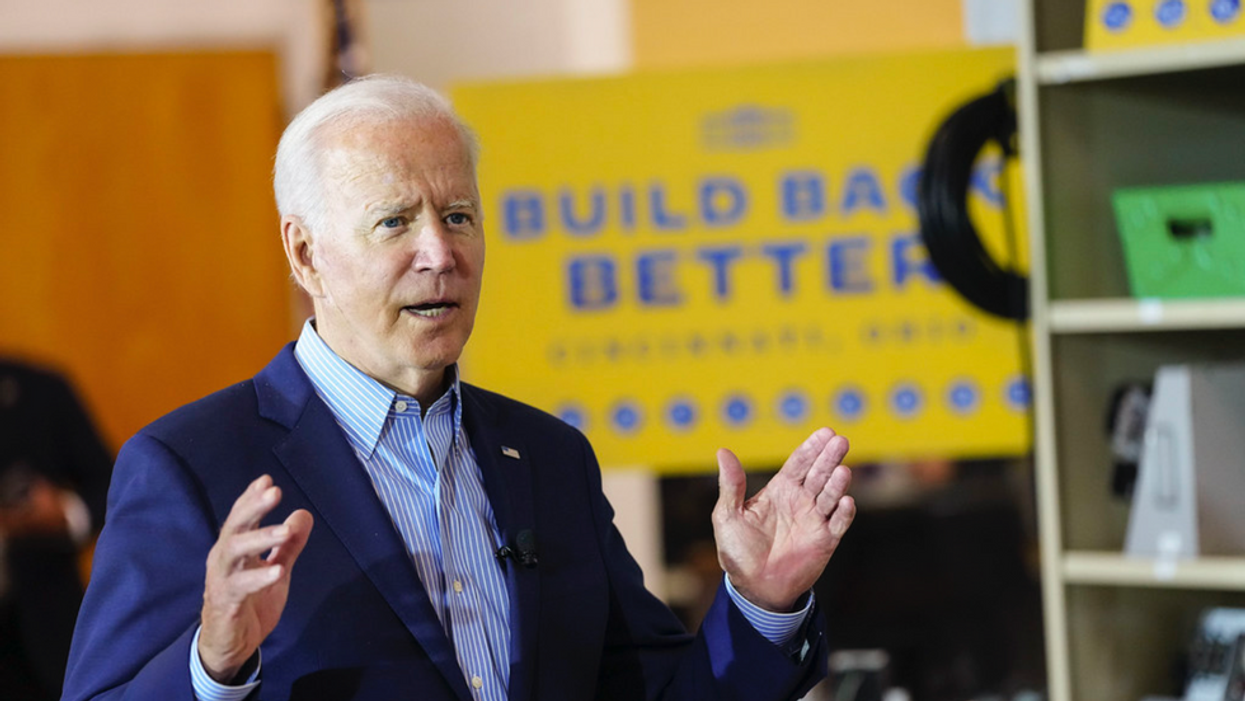What The Media Gets Wrong About The Centerpiece Of Biden's Agenda

President Joe Biden
Reprinted with permission from AlterNet
Last week's election results, which showed modest Republican gains across the nation, set off alarm bells in America's pundit class about the power of progressives in the Democratic party.
Democrats promised change, the Times contrarian Maureen Dowd complained, and instead offered "wokeness" and infighting. Bloomberg's Ramesh Ponnuru warned that even though the Virginia governor's race normally means nothing, former Democratic governor Terry McAuliffe's loss was a "portent" and "bad news" for the national party as it moved forward on a human infrastructure package.
Why? As the editorial board of the New York Times warned, with Joe Biden's $1.75 trillion Build Back Better framework, Democrats were moving too far to the left. "The concerns of more centrist Americans about a rush to spend taxpayer money, a rush to grow the government," the Times wrote, "should not be dismissed."
Indeed, a recent Gallup poll argues that 52 percent of Americans prefer a smaller government, up an alarming 11 percent since last year. But does this mean Biden should scale back his aspirations?
No.
It means Americans are radically underinformed.
In every industrialized country but the United States, government programs perform an essentially moderate task. By supporting workers, they support business. They create vital economies that support well-paying jobs. They keep workers healthy, and vulnerable family members safe. They lower tuitions, train workers so that employers don't have to, and make it possible for students to pay back modest loans at affordable rates.
And best of all — if you are one of those centrists — government programs keep people at work. There is no more graphic example of how the United States has failed at this than the number of healthy Americans who cannot, or will not, return to their jobs.
According to the Bureau of Labor Statistics, as of mid-October, 10.4 million jobs are unfilled. More than 1 million of those workers are mothers who cannot find, or afford, childcare. Some missing workers — 80,000 truck drivers, for example — mean American consumers face shortages of everything from paper towels to covid tests as container ships bob offshore. And prior to the pandemic, school districts in the United States were already short 110,000 teachers.
Republicans, and some centrist Democratic senators, such as Joe Manchin of West Virginia and Kyrsten Sinema of Arizona, argue it won't. Government "giveaways," we are told, will only make Americans dependent and cripple the economy with higher taxes.
Manchin complains the US will move "toward an entitlement mentality" if Americans who can care for themselves without government help don't. And Sinema, who has raised almost $1 million in donations from lobbying groups, has given a thumbs down to higher taxes on corporations and the wealthy, making Build Back Better even harder for deficit hawks in the Democratic Party.
But it isn't clear what Republicans know that conservatives in other countries don't. The United States is the only industrialized country that does not offer paid family leave, and universal childcare, healthcare, and eldercare. In the United States, not only new parents, but sick and injured workers, are back on the job long before they are ready and able to work. And those who can't pay someone to care for family members have to cut back on consumption: experts estimate that American business may be leaving $28.5 billion a year on the table when families re-budget to account for a lost salary.
There is no question that all these policies are moderate because they benefit business. They keep families consuming, and they bring valued workers back on the job rested, healthy and focused. Similarly, knowing that elders and children are well cared for, at an affordable cost, means that families can plan for the big items that drive a healthy economy: houses, cars and appliances, and the thousands of skilled jobs the market in durable goods support.So how would Build Back Better make American business stronger?
But perhaps the biggest categories of government spending that could drive the United States economy are healthcare and education. These economic categories are not only a leading cause of national consumer indebtedness, but also of corporate spending. The cost of college doubles every nine years, and medical debt is currently pegged at $140 billion. Worse, healthcare costs are expected to rise almost six percent through 2028, well above the projected GDP of 4.3 percent.
Why is this bad for business? Because the employers who offer healthcare coverage for over 23 million American workers spent almost $14,000 per employee in 2020. That's over $3.2 trillion.
That number is only slightly less than President Biden requested to pay for a capacious package of universal programs, a number that has been whittled down to half that amount. And corporations spend billions more to administer these programs.
Last Friday, the House finally passed the $1.2 trillion hard infrastructure framework: it had yes votes from Manchin, Sinema — and even Minority Leader Mitch McConnell, Mitt Romney, 17 other conservative senators and 13 House Republicans. Why?
Because it was bold in its scope but moderate in its vision. Businesses know they can't compete in a global economy without modern transportation, roads, technology and data security, and that only federal spending and coordination makes national projects possible.
Human infrastructure — healthcare, eldercare, childcare, education and family stability — is also good for business.
It's not progressive. It's just common sense.
Claire Bond Potter is a political historian at the New School for Social Research. She is executive editor of Public Seminar and was the author of the popular blog Tenured Radical from 2006 through 2015. She lives in New York City.
- Manchin Enrages Democrats With Latest Rebuke Of 'Build Back ... ›
- New Poll Shows Public Still Strongly Supports 'Build Back Better ... ›
- Biden 'Framework' Details Historic Investments In Climate, Child ... ›
- Democrats, You Have One Job -- And You're Failing - National Memo ›
- Hey, Democrats: Get Off 'Planet Woke' And Unite Behind Biden - National Memo ›
- Polls Show Strong Support For Biden Plan -- Despite Millions In Negative Ads - National Memo ›
- Republicans Launch Attack On 'Imaginary' Version Of Build Back Better Bill - National Memo ›
- Chamber of Commerce Earns Big Pinocchio Nose For This False Economic Claim About Build Back Better Plan - National Memo ›








